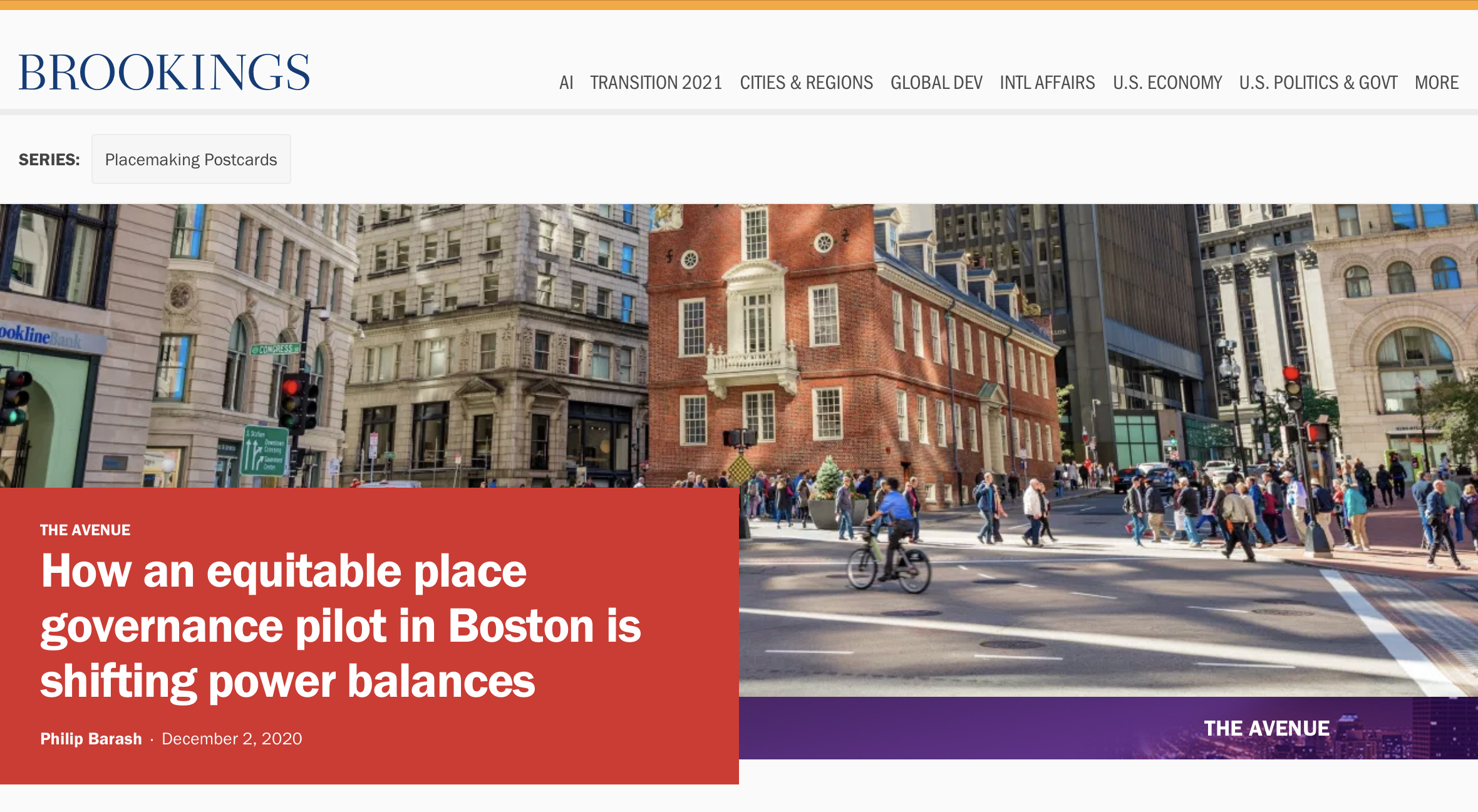How an equitable place governance pilot in Boston is shifting power balances
“If Boston has any hope of altering development dynamics to center community interest and spatial justice, we need to continue shifting the power balance.
This kind of systemic shift requires a great deal more than a foundation. It requires a sustained conversation among policymakers, developers, lenders, planners, activists, and academics, with explicit leadership by community members themselves. It requires a venue for doing so and a commitment from institutions to supporting such a venue while allowing it plenty of independence. It requires the delicate and deeply vulnerable labor of repairing trust between communities and the professionals and agencies that serve them. Then—and only then—can Boston transform from a city designed by developers to one determined by communities.”
Brookings Institution published my essay as part of its “Placemaking Postcards” series.
Brookings Institution’s Bass Center for Transformative Placemaking is regarded as the premier venue in the U.S. for best practices in placemaking and placekeeping. I was honored to contribute a long-form exploration of an initiative that I helped to develop and launch in the Boston region.
My piece is structured as a chronology of the Place Leadership Network, which convened community leaders for a yearlong peer learning process that built shared identity among this cohort and connected its members to funding and other resources. It describes the program design process, outlines the learning objectives, reflects on the process, documents successes and inevitable flaws of the program, and offers recommendations for other philanthropic and policy agencies that might undertake a similar initiative.
I was especially gratified that this piece aligned with Brookings’s emerging focus on place governance, a paradigm shift in the field that emphasizes long-term, community-driven stewardship and ownership of shared spaces.

